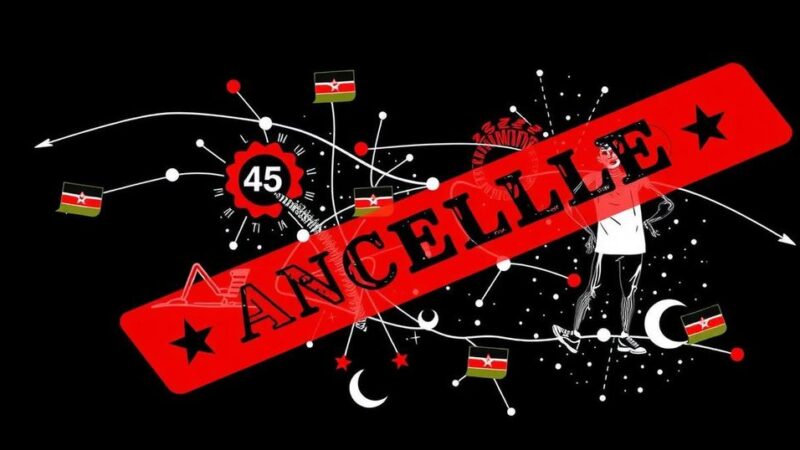Zimbabwe is under pressure to abandon its command exchange rate for the Zimbabwe Gold (ZiG) currency, as businesses face unsustainable operational challenges from enforced exchange rates. Critics, including economist Gift Mugano, are advocating for a more flexible approach, whereas government crackdowns on non-compliant retailers have not mitigated the widening gap between official and parallel market rates. Retailers are increasingly caught in a dual pricing strategy due to currency shortages and volatility. Dialogue between the government and business representatives is essential to address these pressing economic issues.
Zimbabwe’s economic climate is under increasing scrutiny as the government is urged to abandon its rigid control over the exchange rate for the newly introduced Zimbabwe Gold (ZiG) currency, which was launched in April. Businesses, particularly retailers, are expressing their inability to sustain operations under the imposed official exchange rate, which has led to significant losses and the adjustment of prices to mirror the steep decline of the local currency against the US dollar on the parallel market. Economist Gift Mugano has vocalized criticism towards the government’s current monetary policy, advocating for a free-floating exchange rate for the ZiG. He stated, “The central bank must liberalize the exchange rate. We’re in the midst of a storm, and while the right policies must be implemented, the necessary groundwork to make this work wasn’t laid before the ZiG was launched.” The Reserve Bank of Zimbabwe (RBZ), led by Governor John Mushayavanhu, has attempted to address the situation by cracking down on retailers who are not complying with government regulations on exchange rates. However, despite efforts to regulate the market, the reality of the currency landscape remains stark, with the ZiG being traded in the parallel market at rates that significantly exceed the official interbank quotes. Economists and business representatives are sounding an alarm over the disconnect between the ZiG’s value and the actual gold price, attributing its decline to market confidence rather than effective monetary policy. Vince Museve remarked, “This market is mainly informal and not influenced by RBZ policies.” The Retailers Association of Zimbabwe has indicated that suppliers are now compelled to maintain different pricing strategies—one for local currency transactions and another for foreign currency, citing a critical shortage of foreign exchange alongside erratic fluctuations in the ZiG’s value. The association asserted, “This situation is unsustainable,” emphasizing that rising prices in US dollar terms are further exacerbating inflation and pushing consumers towards informal markets instead of formal retail outlets. Furthermore, Denford Mutashu, president of the Confederation of Zimbabwe Retailers, has called for proactive discussions between the government and the business sector to collaboratively navigate the ongoing economic crisis. Despite governmental attempts to infuse over $100 million into stabilizing the either currency, recent valuations show that the ZiG was trading between ZiG35 and ZiG40 per US dollar on the parallel market while the official interbank rate stood at ZiG13.98. Analysts have raised concerns that this expanding gap may lead to increased opportunistic behaviors, further deepening the economic turmoil.
The context of Zimbabwe’s economic situation revolves around the country’s turbulent relationship with currency management, particularly following the introduction of the Zimbabwe Gold (ZiG) as a new form of currency. This initiative aimed to stabilize the economy; however, stringent government control over the exchange rate has led to substantial distortions. The divide between the official and parallel market rates continues to grow, causing significant operational challenges for businesses. Retailers further contend with foreign currency shortages and have resorted to dual pricing strategies due to excessive volatility in the local currency’s value. Economic experts and business leaders are advocating for a liberalized exchange rate as a potential solution to these ongoing economic challenges.
In summary, Zimbabwe’s economic plight highlights the critical need for a reevaluation of its currency management policies, particularly the command exchange rate for the Zimbabwe Gold currency. Businesses are advocating for a shift towards a free-floating exchange rate to remedy unsustainable economic practices and foster stability in the market. With ongoing inflationary pressures and dual pricing strategies complicating operations, constructive dialogue between the government and the private sector is imperative for devising effective solutions to navigate this challenging economic landscape.
Original Source: bulawayo24.com






